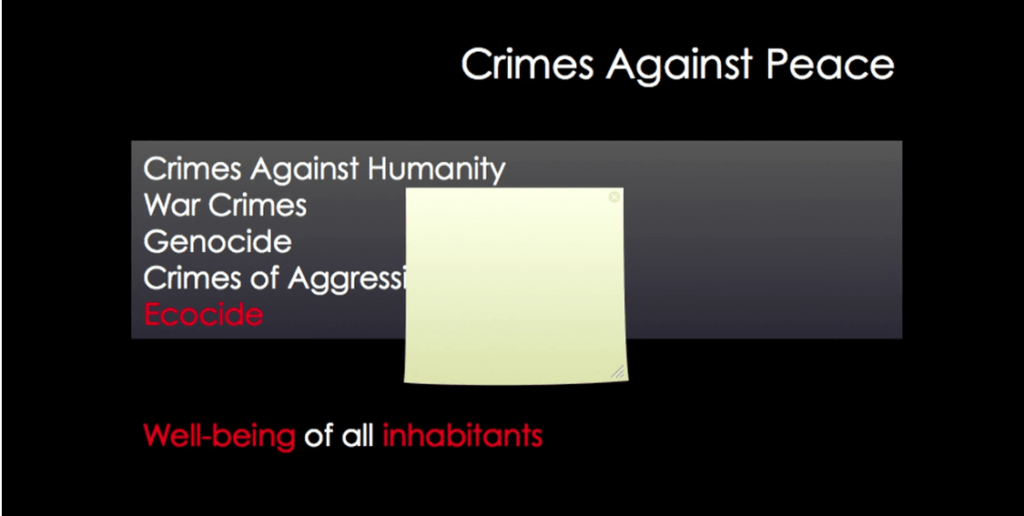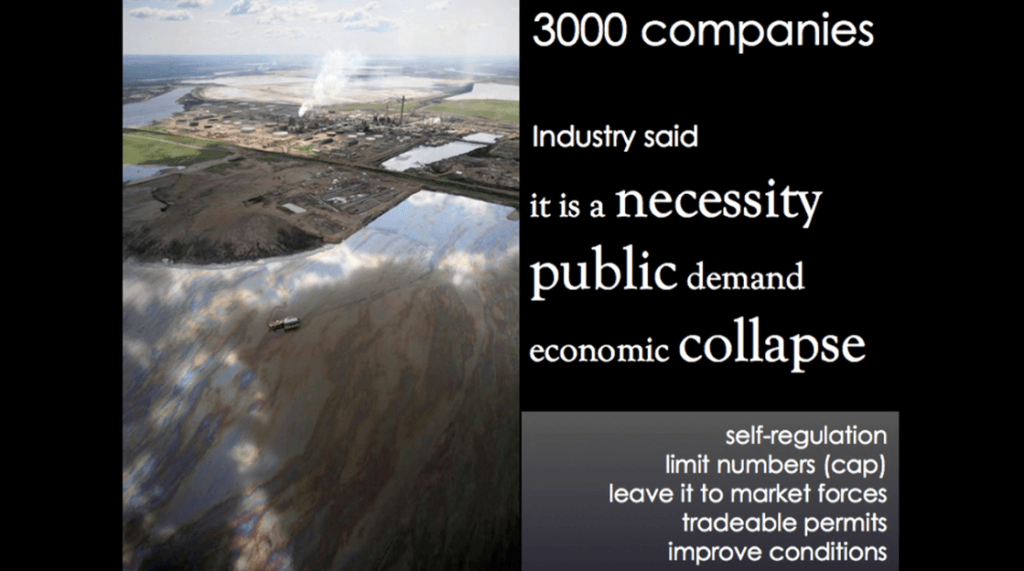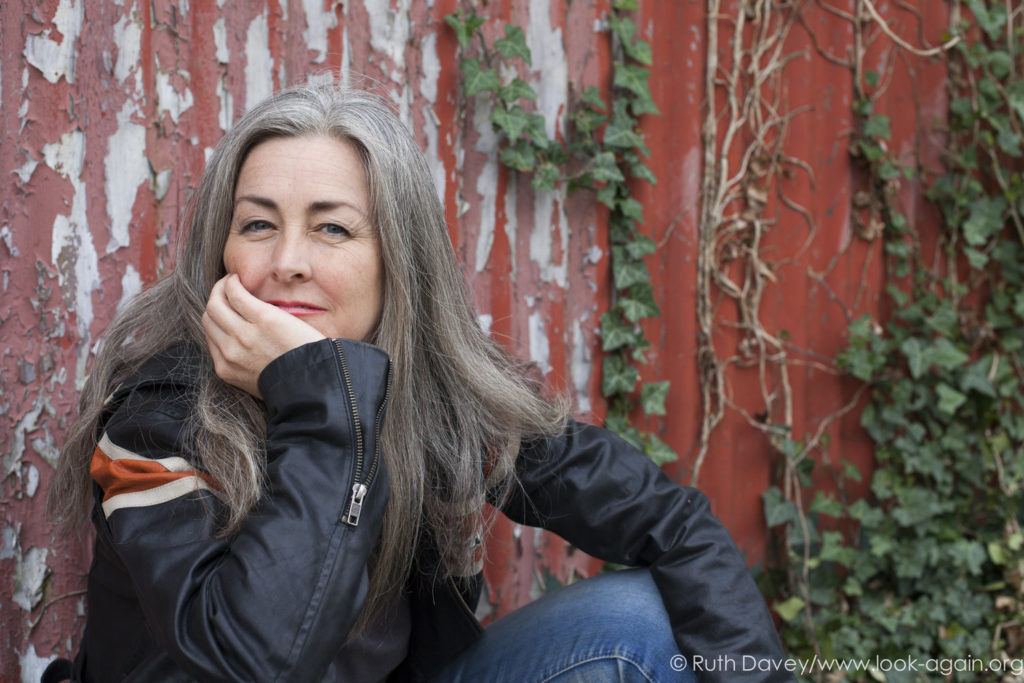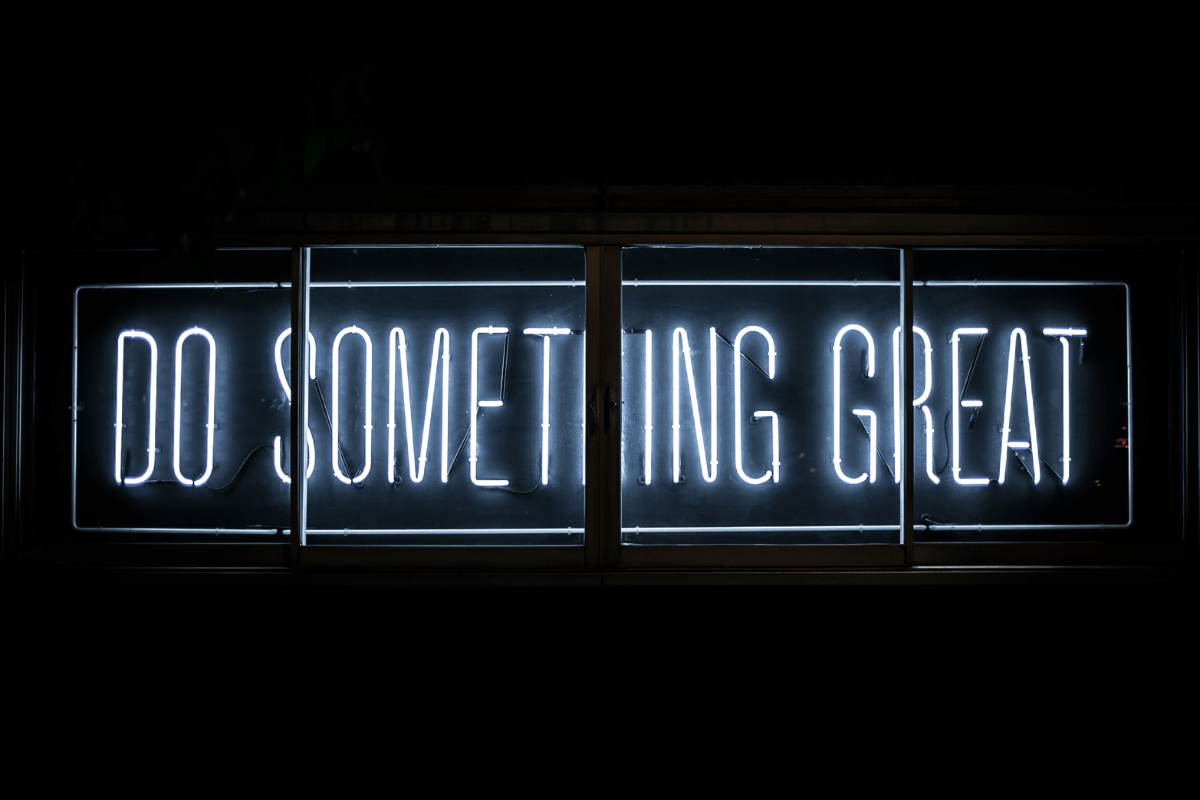This is a transcript of the talk offered by Polly Higgins (Earth Lawyer) at TEDxExeter in 2012 – shared with kind permission of Ecological Defence Integrity.
Seven years ago, I was standing in the Royal Courts of Justice in London — I’m a barrister — and it was the very last day of a long running case where I had been representing a man who had been very badly injured and harmed in the workplace. I was his lawyer, and I was giving voice on his behalf in court.
There was a moment of silence while we waited for the judges to come into the room, and at that moment, I looked out of the window, and I got thinking. I looked out and I thought, you know, the Earth has also been badly injured and harmed, and something needs to be done about that.
My next thought actually changed my life. I thought, “The Earth is in need of a good lawyer.” Now, that was a thought that didn’t leave me alone. I went away and I thought about it, and I thought, well, you know, “As a lawyer in court, where are the tools that I need to represent the Earth in court?” And what I realised was that they didn’t exist.
So I started thinking about this: What do I need to put in place for this? What if the Earth had rights? After all, we as humans have rights. The most important right of all, of course, is our right to life. What if the Earth had the right to life as well?
And I spoke to other lawyers about this. They said, “Polly, you’re mad. Of course the Earth doesn’t have rights. And after all, there’s a whole body of environmental law out there. Why not just use that?” But I said, “Well, there’s a problem here. All this existing environmental law, it’s not working; it can’t be working! You just have to look at the Amazon to see this is not working. We’re looking at mass damage and destruction that’s escalating every day. Existing law is not stopping that.”
So what I did was I looked around to see who else was thinking like me, and what I discovered was that, in fact, there are many people thinking like me. Seven hundred and fifty million people out there, to be exact.
Three hundred and seventy million of them are indigenous. They get the idea that the Earth has the right to life. They get the idea that life itself is sacred — not just human life, but all life.
Also I discovered Buddhists understood this way of thinking as well. That’s another three hundred and eighty million people. Seven hundred and fifty million people, the size of Europe, already think like me. It’s just that it’s not written down in law.
But then I got thinking further because of course, actually, with our human rights and our right to life that’s also governed on a one to one by the crime of murder — or in America, it’s called homicide — when it’s ourselves and our community, it’s called genocide. And I was actually speaking to a large audience a couple of years ago, back in 2009, about Earth rights, when someone in the audience said, “You know, we need a new language to deal with this mass damage and destruction that’s happening of the Earth, of our ecosystems.”
And I thought, you know, you’re right. It’s like genocide; it’s an ecocide! And it was one of those light-bulb moments; literally, I felt as if a light had gone on above my head. And I thought, my God, it should be a crime. Is that possible? Could we make ecocide a crime?
And I rushed home, and I went off and I researched this. And three months later, I came up for breath, and I realised that in fact, indeed, not only could we make it a crime, but it is a missing, fifth crime against peace.

Now you’ll see here in this slide, what this sets out here are what are known as the international crimes against peace. We already have crimes against humanity, war crimes, genocide; they were put in place after World War II. And they act as umbrella laws; they cover the whole of the world. They’re kind of super laws; they supersede everything else. All other laws must come in line with them.
Crimes of aggression — that’s the run-up to war — that was just put in place in 2010. And I say that, actually, there’s a fifth crime against peace here, and that is ecocide. What we have in existence already are laws that protect the well-being of life.
Actually, what they protect is the sacredness of life itself. And I’m saying it’s not just human life, but we expand our cycle of concern out and that it’s the well-being of all life, of all inhabitants who live in this earth.

This is a diagram of what’s happening in the world at the moment. We have damage and destruction on a mass scale playing out, which is what I call ecocide, and I’ll unpackage that term in a moment, but it’s leading to, amongst other things, resource depletion, which leads to, amongst other things, conflict, which can then lead to war, which of course leads to more damage and destruction, more resource depletion.
In fact, what’s happening in the Congo at the moment is a very potent example of this cycle spiraling onwards and upwards, faster and faster, conflict leading to more war, to more damage and destruction, to more ecocide. And so it goes on spiraling onwards and upwards. It’s what Sir David King calls “a century of resource wars.” That’s what we’re looking at. I think there’s another way that we can turn this around. We can actually halt it in its tracks.
This is not about slowing down this cycle, but it’s actually stopping it. Intervening. And by creating a law that actually acts as a disruptor to that spiral as it spirals onwards and upwards, and that’s what a law of ecocide can do.
This (see slide below) is the beginning of the legal proposal that I submitted into the United Nations.

Ecocide is a crime when we cause extensive destruction, damage to or loss of ecosystems. Now, every word here is legally weighted. But possibly the most important word here is that word inhabitants — you’ll see it’s not just people, but we’re talking about inhabitants. And of course, that’s a recognition that if we look at any given territory, it’s not just human beings that live there, but there are other species as well.
It’s also a recognition of the interconnectedness of life itself. Ultimately, destroy the Earth that we stand on, and we destroy our ability to live in peaceful enjoyment. Now, there are two types of ecocide here. Human-caused ecocide. And human-caused ecocide is when we see and we’re able to ascertain that as a result of our actions, we’re causing mass damage and destruction.
And in fact, we heard earlier today about how, in human-caused terms, we’re also creating injury in other ways — increasing of greenhouse gasses, that’s one outcome of causing mass damage and destruction.
I have, in fact, just recently submitted to all governments a concept paper on how we can use this law to close the door to dangerous industrial activity that is causing human ecocide, human-caused ecocide.
But there is another type of ecocide that I wish to talk about today, and that is naturally occurring ecocide. That’s when we see tsunamis, floods, rising sea levels, anything that causes mass ecosystem collapse. And we can create an international law that doesn’t just govern corporate activity, but more importantly, that imposes a legal duty of care on all nations to give us systems when something like this occurs.
Because at the moment we have the likes of the Maldives standing up and saying, “Help us! We’re looking at going underwater with rising sea levels within the next decade.” And governments are saying, “Nothing we can do.” In effect, what they’re saying is actually, “We don’t have a legal duty of care to give assistance.”
By creating a law of ecocide, we can impose a legal duty of care so that all nations come together and preempt this. After all, there are 54 small island states that are looking at rising sea levels. And not just 54 small island states, other countries as well, Bangladesh, are looking at not just floods, rising sea levels, but also they have a triple whammy because they have melting ice as well.
By imposing a legal duty of care on nations, the dialogue can begin to take place where we decide, “What are we going to do to give help?” And that is very important, that we can move forward together in this. Because, ultimately, at the end of the day, even if they are the other side of the world, we are in this together.
But it goes further than that. In international criminal law, we have a principle called superior responsibility. Yes, this is about taking responsibility, but more than that, it’s about imposing superior responsibility upon those who — if you imagine like a triangle — sit at the top of the triangle, those in a position of command and control. Now, that means heads of states, ministers. It also means chief executives, directors, heads of banks — those who are in a position to make decisions that can adversely impact on many million peoples underneath.
And by imposing a legal duty of care upon those individuals, we actually create a framework upon which we can make decisions that are based on prioritising people and planet first. And that’s about closing the door to the dangerous industrial activity.
What this comes down to is two different ways of viewing the Earth. View the Earth as an inert thing, and what we do is we put a price tag on it. We impose a value on it. What we do is we buy it, we sell it, we use it, we abuse it, we commoditise it. That’s all governed by the law of property. However, there is another way of viewing the Earth, and that’s about viewing the Earth as a living being. And when we do that, it comes from a very different place. In fact, it shifts dramatically how we look into the long term. Because once we see ourselves as trustees, as guardians, we start taking responsibility for future generations.
And this is about realigning the scales of justice. Just now, they’re out of kilter, they’re out of balance. I believe we can do that; we can rebalance that.
In fact, we have done this once before in history, and I’d like to take you back two hundred years. Two hundred years ago, William Wilberforce, who was the parliamentarian here in Britain who took up the mantle for the abolition of slavery, when he stood up and said, “Morally, slavery is wrong; we must stop this”, what he met with was a barrage of objections.
Big industry said, “You can’t do that, because it’s a necessity. The public demand it, and what’s more, our economies will collapse if we get rid of slavery.”
Well, those 300 companies that were involved in slavery, they came up with different ideas. They said, “Leave it to us to sort out, our voluntary mechanisms: we will self-regulate this. Too many laws already. What’s more, we’ll limit the numbers if push comes to shove. In fact, we can leave it to market forces to work this out. Create a cap-and-trade system, if you like.”
Now, the interesting thing is that the British parliament said no to all of those proposals. And indeed, two days before William Wilberforce died, laws were passed, which created ripples right across the world in ending slavery. Now, if we look to today, what we’re seeing is actually a very similar picture. What’s changed here is the picture.

This is of the Athabasca tar sands, in Canada. Now, when I first saw these pictures, my heart stopped, it stopped me in my tracks.
I looked at what was going on there, and I said, “Really, this is a crime.” Now, what we’ve seen today is that industry is saying exactly the same thing. The difference is that, in fact, we have tried those solutions, and we’ve discovered they haven’t worked. Now, one of the successes that came out of slavery was the fact that it was managed, there was a transition period. Not one of those companies went out of business.
And William Wilberforce was governed by something that I am also very governed by. This is not about closing down big industry. This is about making the problem into the solution. In fact, not one of those 300 companies went out of business after the abolition of slavery. Some of them went on to trade in tea in China. They were given subsidies.
Some of them actually became the polices of the seas. William Wilberforce said, “Three crucial things have to happen: You pull the subsidies, you outlaw the problem, and you create new subsidies in the other direction.” And that’s precisely what we’re needing to do today.
But it’s more than that. It actually goes back into the annals of time, of something that’s known as the Sacred Trust of Civilization. Now, this is a concept that goes back in written documents, as far as I could find, to the 16th century, and it has been enshrined in the United Nations Charter, which is our first successful international legal document, put in place after World War II.
What that says is that members of the United Nations have a duty, a legal duty, to put the interest of the inhabitants — it’s that word again, inhabitants — as number one, the primary duty that we have, duty of care, and that we accept as a sacred trust. Trust!
So this is about us being trustees, stewards, guardians and that we have an obligation to promote to the utmost the well-being of the inhabitants. It’s a health and well-being provision; it’s about putting people and planet first. A law of ecocide gives this section in the United Nations Charter legal validity. And that’s very important. Because an international law of ecocide is a crime against humanity, but it’s more than that: it’s a crime against Nature, it’s a crime against future generations. Ultimately, most importantly, it’s a crime against peace.
This is about prioritising people and planet over and above profit, but also a recognition that when we do that, when we open the door to a conflict-free world, we can create innovation in a very different direction, that actually gives us abundance in many, many ways.
Now, I’m not anti-profit, not at all. In fact, I’m very pro it. But what I am doing is I am closing the door to that which causes life destruction, and I’m opening the door to that which affirms life itself.
So this takes me back to seven years ago, when I started with one very powerful thought and how it’s really led me on a journey and continues to do so. It’s not just about proposing an international law of ecocide, but in fact, it’s also beginning to lead me along a journey of examining, What is it that we need here? Leadership, an adaptive leadership; we have fast-changing times. It’s also led to a book, Eradicating Ecocide, that sets out this law and explains why law, in fact, has caused the problem.
Did you know this?
It is the law of corporations to put profit first. A company has a legal duty to maximise its profits to its shareholders. Now that used to serve us well. But unfortunately, we didn’t look to the consequences. A law of ecocide would supersede this and pose a piece of legislation that, in fact, allows us to look to the consequences. A think before you act provision that acts as a great turnkey.
In conclusion, I just want to say this: Martin Luther King once said that when our laws align themselves to equality and justice, then we will have true peace in this world. When our laws align themselves with a higher understanding, then we will have that true quality in justice.
Ecocide is a law that allows us to align ourselves with natural justice. And I believe that in my life that that is something worthy of actually giving my life to to make happen.
Thank you very much.
About Polly Higgins – Award-winning Author, Barrister & Ecocide Law Expert (1968 – 2019)

Polly Higgins was a pioneer; since stepping down from her legal practice as a court advocate, she devoted her time to one client – the Earth. Her work is groundbreaking: internationally, she was the lead advocate for and expert on ecocide crime, award-winning author of Eradicating Ecocide (which won the Peoples Book Prize in 2011), creator of the first ever non-commercial global trust fund for Earth Protectors, generator of change-making Earth protecting laws and a driving force behind the expansion of a ‘rights based’ narrative towards a ‘duties and responsibilities’ based governance model.
She is the co-founder of non-profit Ecological Defence Integrity established in response to the recognition that new law for the Earth requires a far wider base of support than most governments will provide. Ecological Defence Integrity administers Mission Lifeforce – an unprecedented global funding platform created to fund ecocide law.
Polly has been hailed as one of the World’s Top 10 Visionary Thinkers by the Ecologist and celebrated as The Planet’s Lawyer by the 2010 Change Awards. Founder of the Earth Law Alliance and The Earth Community Trust, she has garnered a number of awards for her work advocating for a law of Ecocide. She received an Honoris Causa Doctorate from Business School Lausanne 2013; in the same year she became the Honorary Arne Naess Professor at Oslo University. In November 2015 VPRO (Dutch BBC) featured a documentary about her work, called Advocate for the Earth.
On Monday, July 15, 2019, the environmental activist group Extinction Rebellion parked a boat emblazoned with the message “Act Now” outside London’s Royal Courts of Justice. It was named in honour of Polly Higgins.
Find out more about her impressive life and work here.



Leave a Reply